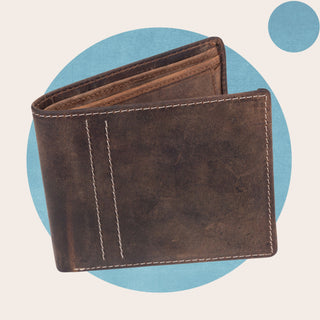Are you debating about the best way to get foreign currency? Are you looking for some tips on how to get your foreign currency cheap and easy before you head on your way?
Then step forth as we explore 6 top tips to get the cheapest travel money including things to do and things to avoid along the way.

1. Get Cash at the Bank Before Leaving the Country
One of the most essential ways of ensuring that you do not get scammed out of a bunch of money when you exchange currency is to go directly to your bank or credit union. To do this, you have to go before you leave the country unless your bank has outlets in the country that you are visiting, though even still it is not worth the risk.
If, for example, you are visiting somewhere from the US, you will be pleased to know that most big US banks have foreign currency available to sell without additional charges beyond the current exchange rate.
To do this you can either go to an outlet of your bank or you can order the currency online through a currency exchange to be delivered to your home. Some banks in certain locations might even be able to offer a same-day exchange, meaning you can instantly exchange foreign currency.
2. Avoid Currency Exchange Kiosks
You can be sure to find a whole bunch of these kinds of kiosks at airports, no doubt exploiting those travelers who either forgot to exchange currency, didn't have time, or otherwise, worried that they didn't exchange enough elsewhere.
For all the convenience that such kiosks offer, the exchange rates that they offer are far less favorable than those that would be offered by your bank or credit union. This occurs because the kiosk does not offer competitive exchange rates, adding foreign transaction fees because they know that you are likely not in a position to exchange currency elsewhere.
When exchanging currency in this way, make sure you have a decent currency conversion calculator so you can exchange money properly. Banks and credit unions are likely going to offer you the best rates without a foreign transaction fee.
3. Paying by Card
Something to be incredibly wary of in the modern day is the presence of these kinds of foreign transaction fees when paying with a credit or debit card.
Depending on the currency exchange rate and which bank you are with, your card might carry a foreign transaction fee - up to 3% on every purchase in other countries, for example. To avoid these kinds of covert extra fees, you will need to have read the fine print on your bank's website before you travel. Alternatively, you can just ask them directly via phone or a quick Google search.
If you have enough time before you travel, why not apply for a credit card that doesn't charge these kinds of extra fees, particularly those with good travel rewards? If not, you can always try to find the best place to exchange foreign currencies on your own.
4. Pay in the Local Currency
There are plenty of international merchants who are cheeky enough to have cottoned onto letting their clients choose whether they want to pay for their purchase in local currency or home currency. Sure, this kind of thing doesn't happen with every purchase, but it is best to be vigilant as it is a great way to avoid fees.
In such situations, always choose to pay in the local currency. Choosing to pay in your own currency is likely to incur an extra currency conversion fee which, in turn, might mean that you get a poor exchange rate.
These merchants are very cheeky and may make it seem like it is a convenient choice to pay in your own currency, but this will ultimately cost you more in the long run.
5. Knowing your ATM Fees and Limits
Even if you are able to source good currency conversion fees using a foreign ATM, maybe it would be best to hold off on using one until you have found out for sure what kind of fees your bank charges and what kind of limits it imposes on daily withdrawals when you are abroad. This is one of the key tips for business travel.
The best way to check is to contact your bank directly and ask about the daily withdrawal limits on your account. If it is low, then try asking your bank to raise the limit so that you can withdraw more while you are traveling. Equally important is to ask them about any fees that might be incurred when using an out-of-network ATM while traveling abroad.
Some international ATMs might even limit you to a lower amount of cash withdrawals than your own bank allows. The same goes for the amount you withdraw from the machine. In such instances, you will wish you had planned ahead and ensured that you had enough cash for the trip.

6. Using International Banking Apps
Perhaps you are the kind of traveler who is going places on a regular basis, in which case you might wish to consider using an international banking app. There are plenty on the market today, such as Wise (formerly TransferWise), Revolut, etc. Such apps proclaim to deal with all things related to money, making it easier for you to hold multiple currencies and transfer money between different accounts in different countries, making them some of the best travel apps.
If, for example, you frequently travel to another country like, say, Canada or Mexico, you can avoid the altogether volatile punishment of metamorphosing currency exchange rates by always having money ready for your next trip.
The same goes whether you are a legal resident in this place or even if you just like visiting there often.

Final Words
So, there you have it! Hopefully, you are now feeling ready and able to get the cheapest travel money around!
FAQs Best Way to Get Foreign Currency
WHAT IS THE CHEAPEST WAY TO GET FOREIGN CURRENCY?
The cheapest way to get foreign currency is by going directly to your bank or credit union and asking them to convert your money to the currency of your destination. Doing so with your bank means you are less likely to incur extra fees beyond the usual metamorphosing exchange rates.
WHAT IS THE BEST PLACE TO GET FOREIGN CURRENCY?
The best place to get foreign currency is likely the cheapest, that being to directly contact your bank or credit union. Banks are less likely to add additional fees on top of the already metamorphosing exchange rates. If you don't have time, though, you can always try a kiosk at the airport just for the hell of it.
IS IT BETTER TO GET FOREIGN CURRENCY AT AN ATM?
In terms of convenience, it is definitely best to just get your cash from an ATM. Such a method, however, is likely to incur extra charges and impose certain limits upon the amount you can withdraw and the number of times you can withdraw cash per day.
SHOULD I GET A FOREIGN CURRENCY BEFORE I TRAVEL?
Though you will likely be able to find a place abroad that can service you in terms of foreign currency, you are best advised to try and get your foreign currency before you leave your country. After all, who knows what kinds of extra charges and limits are likely to be imposed on your exchange rates and currency exchanges?



